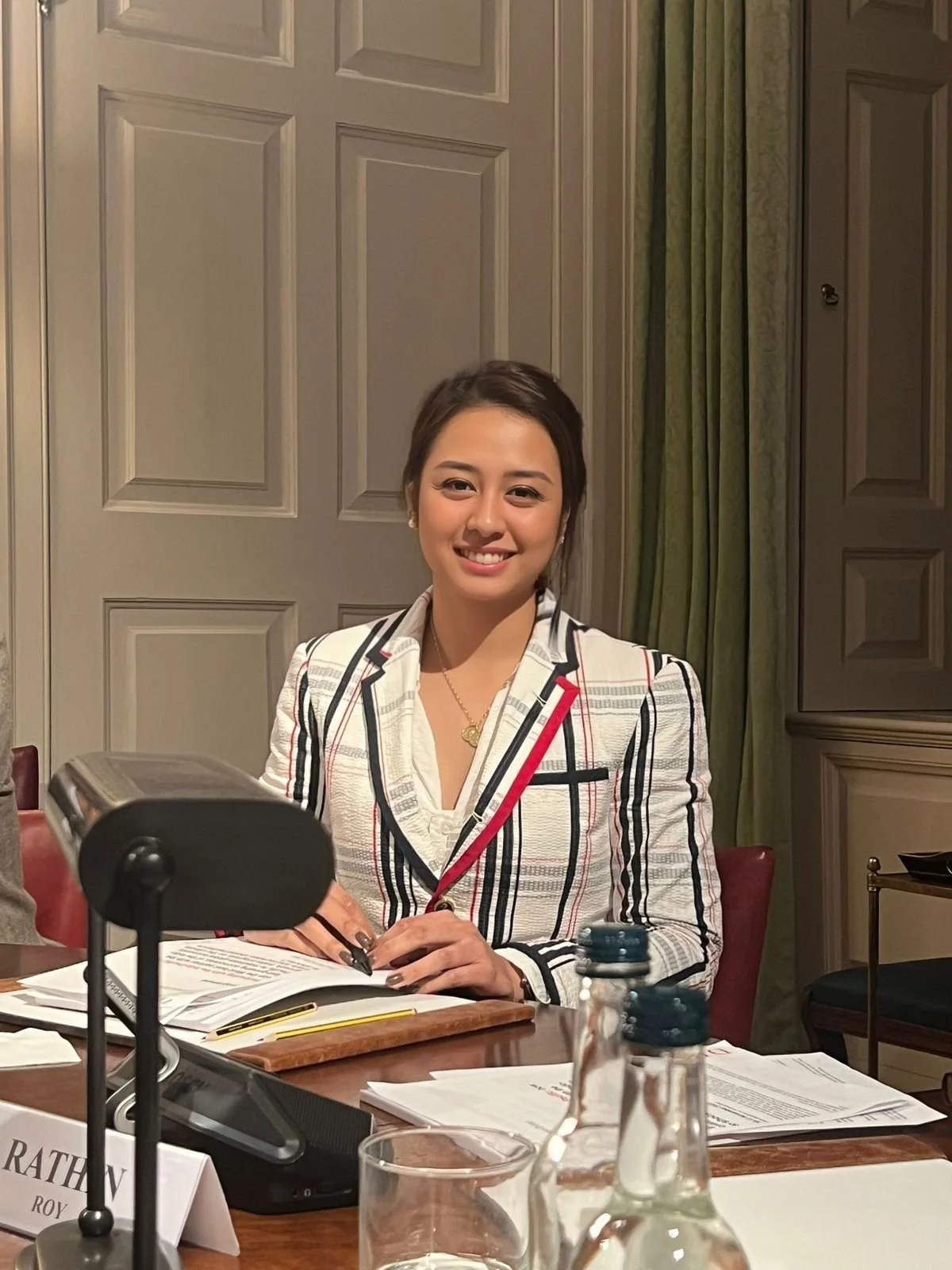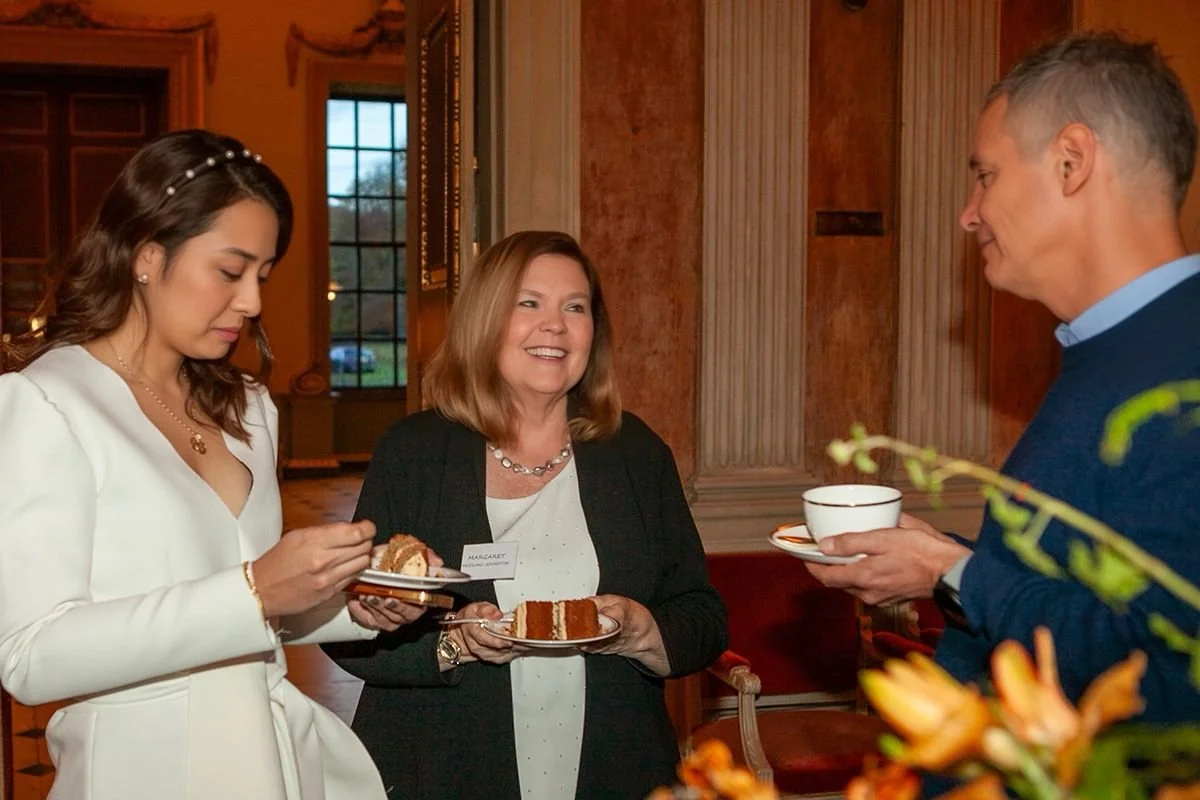It Takes Two to Tango: Reflections on Partnerships, Confidence, and Representation from the Ditchley Conference
Sometimes, we find ourselves in situations where we have to speak up, even if it's frightening. We need to say what needs to be said because if we don't do it, then who will?
Shawntel at the Ditchley Conference on “Partnering with the Indo-Pacific”
I came into the Ditchley conference certain that I was there to attend, soak up all the insights that would come from the brilliant, vastly experienced, and well-accomplished leaders that made up our cohort, and live a temporary Bridgerton dream at the Ditchley estate. To an extent, all these came true.
However, just as any beautiful tale would show, such was not the end of the story.
At the Ditchley conference, we discussed how the West could best partner with Indo-Pacific economies to maximise global economic growth, mitigate the climate crisis, and increase shared resilience to shocks. By the beginning of the first plenary, however, one thing was clear: Among the developing countries part of the Indo-Pacific, there was only one represented in the room — the Philippines, and that was because of me. After having made this known, a fellow participant came up to me saying, “You sure have a lot on your plate now. You have to represent all the 12 other countries that are not here.”
To the best of my ability, that is what I did.
Amongst all my interventions during the plenaries and working group sessions, there is one most relevant to raise in this blog: there is a clear need to adopt a firmer bottom-up approach to building partnerships, especially on a global scale. In plenaries, I stressed that building trust and impactful partnerships requires engaging with countries, understanding their genuine challenges, and recognizing on-the-ground realities. Without this, agreements may be hollow, and bilateral partnerships offer a more pragmatic approach than creating an overarching regional framework.
However, discussing optimal ways for geopolitics is not the core message of this blog. Whether addressing foreign policy leaders or a general audience, I urge all readers to be mindful of the same requests emphasized in partnerships between countries as we navigate our own work.
These requests are to always listen and speak.
On the one hand, it is tempting to think we have answers to everyone else’s problems. It is easier to shove our perspectives, ideas, ideals, values, or solutions onto other people in the guise of supporting them. I know many people and organisations that truly want to do good being unconsciously guilty of this. Yet, true problem-solving only ever comes from co-creating solutions with all stakeholders affected by an issue. This cannot happen without everyone humbling themselves to listen and learn from one another. It is through listening that we learn about each other’s true pain points and derive insights leading to concrete, practical, and impactful solutions.
Ditchley Conference group picture
On the other hand, it is just as tempting not to say anything at all. I was sure I would hardly provide any insights at such a high-level conference. Yet, I did; and it was mostly because I had to.
I may not have been an expert in geopolitics nor the realities of all the countries in the region, but I had insights on how we really experience the issues, see the region (including the fact that hardly anyone in Asia calls it the “Indo-Pacific”), and define both success and development. More importantly, I knew if I did not point out lapses or gaps in the discussions, no one else might, and that would leave us all the worse for it.
Even in the most daunting moments, I had to muster up the courage to say what needed to be said — and I had to do so in the most diplomatic, comprehensible, and logical way possible.
Fortunately, if I were to trust the remarks my colleagues at the conference gave me, I could say that doing so made all the difference.
Chats between sessions
This will not be the last time I have to speak about issues and represent entities and causes greater than myself. I do not know if, over time, it would be easier or more difficult for me to do so. In all future opportunities, I'll reflect on this Ditchley conference as a reminder of the importance and capability to voice necessary sentiments. It reinforces my commitment to articulate what must be said, contributing to the advancement of shared goals within any group I engage with.
Such is the case for myself, and I know such also holds true for every individual reading this blog. Thus, as I end this short piece, I only ever ask anyone reading this to remember:
Sometimes, we find ourselves in situations where we have to speak up, even if it's frightening. We need to say what needs to be said because if we don't do it, then who will?
Once it is your time, go and do what needs to be done, because you can and because we need you to.




